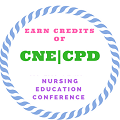
Sevim ULUPINAR
Istanbul University Florence Nightingale Nursing Faculty, Turkey
Title: Nursing Students' Participation in Social Activities and Social Emotional Learning Skills
Biography
Biography: Sevim ULUPINAR
Abstract
Statement of the Problem: One of the basic conditions for raising qualified and well-equipped individuals is participation in social activities that enable the student to make life more enjoyable and productive in both the family and the school environment. Social activities support the development of students' self-expression, communication, learning, research, adapt to the group, cooperation and so on social-emotional skills. Methodology & Theoretical Orientation: The aim of the study is to determine the factors that affect the participation of students in social activities and social emotional learning skills. The sample of the descriptive study consisted of 715 undergraduate students of nursing faculty. The data were collected using the Social Emotional Learning Skills Scale (SELSS) and a questionnaire to identify student characteristics, participation in social activities. SELSS is a 4 point Likert scale and consists of 4 sub-scales and 40 items (min:40- max:160 points). The cronbach-alpha reliability coefficient of the scale is .93. The data were analyzed using student–t test, OneWay ANOVA, correlation, chi-square. Findings: 87.4% of the students are female, the average age is 20.8 years. 41.7% of the students participate in social activities. The average duration of participation in social activities is 1.14 years and the average of the period of weekly social activities is 2.28 hours. Students expressed that participating in social activities; increased their socialization, self-confidence, assertiveness skills, and they have positively influenced their ability to approach with different opinions, thoughts, and tolerance. There is a significantly difference between the participation of students in social activities and age, gender (higher in women) and class (higher in senior students). There is a moderately significant positive correlation between the duration of participation in social activities and the weekly separation of social activities. The averaged of the SELSS total score is 123.85. There is a positively weak relationship between the age of the students and the subscale of SELSS's stress coping. Senior students have a higher score on stress coping subscale of SELSS. Also female students score higher on communication subscale of SELSS. Conclusion: There was a significantly difference between students' participation in social activities, the duration of their participation, the time they spent weekly, and the SELSS total score. According with these results, it can be suggested that the participation of students in social activities would be supported. Keywords: social, activity, social emotional learning, social activity, nursing student

